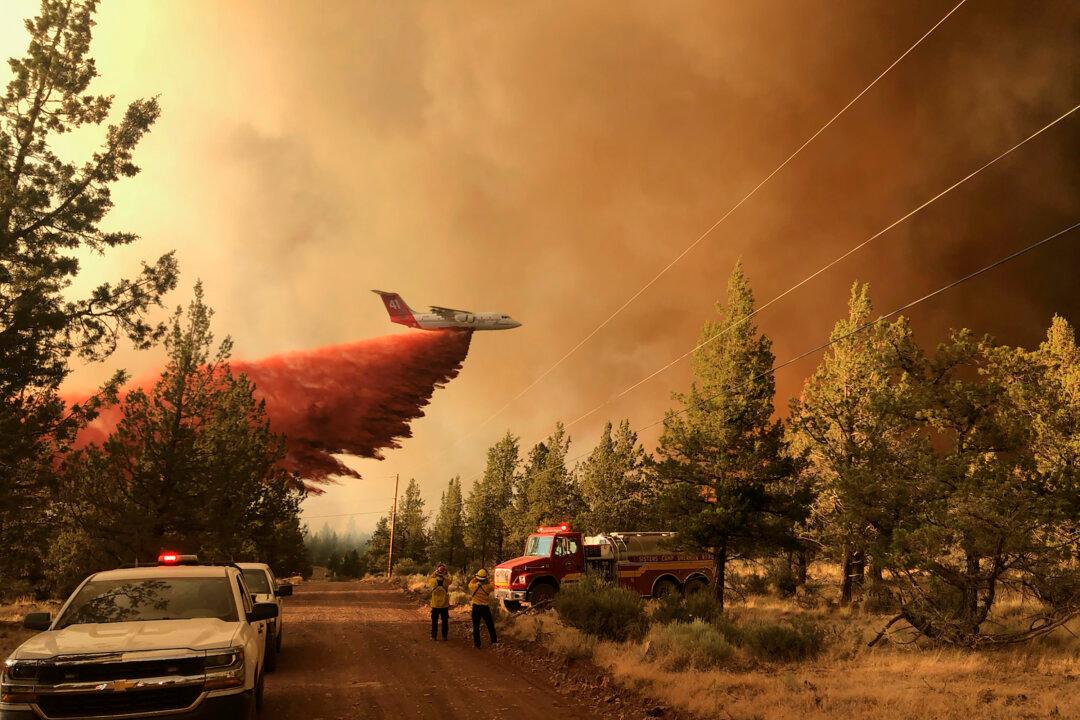In Oregon, the lightning-sparked Bootleg Fire that has destroyed at least 20 homes was raging through lands north of the California border Wednesday.
At least 2,000 homes were threatened by flames.

In Oregon, the lightning-sparked Bootleg Fire that has destroyed at least 20 homes was raging through lands north of the California border Wednesday.
At least 2,000 homes were threatened by flames.